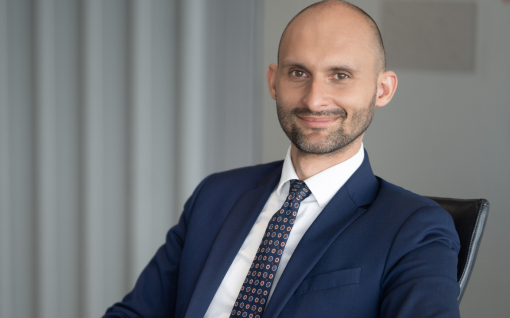It’s no secret that since 2015, key constitutional values have been in crisis. History shows that the last bastion of freedom of speech, which guarantees these values, is the free press. However, over the past three years, there have been repeated legal actions by state institutions, state-owned companies, businessmen and other lobbying organizations aimed at stifling the work of journalists, publishers and NGOs.
This is typically seen in the initiation of a series of frivolous legal proceedings, the aim of which is not to realize a genuinely violated interest, but used solely to intimidate and silence journalists by forcing them into a time-consuming and costly defense against groundless accusations. The statistics are irrefutable. Figures indicate that more than 90 percent of pleadings that are levelled against clients in the media sector may qualify as SLAPPs (Strategic Lawsuit Against Public Participation).
SLAPP – a Strategic Lawsuit Against Public Participation
SLAPP attacks can be defined as a legal action against public participation, serving to cut off public opinion from relevant information and also indirectly fostering the spread of disinformation. The actions described above limit public debate and in their wider scale can lead to the suppression of dissent and any criticism of the state or of socially undesirable phenomena.
In our daily work on behalf of a leading media company in Poland and the journalists working there, we make sure that our client’s business objectives and its role in society are consistently fulfilled.
Active and effective defense of the media
Individuals, institutions, or businessmen in the public eye often are opposed to journalists making public information which may be damaging to their reputation, including on such matters as suspected bribery, embezzlement of public money, controversial military procurement, questionable reprivatization, reorganization of the justice system, or discharge of toxic chemicals into local water supplies or rivers.
It is in just these situations that a lawsuit or indictment is most often filed to silence critical voices and prevent journalists from investigating and disclosing information unfavorable to the accusers.
We actively participate in the defense of media and journalists who have the courage to report irregularities regardless of the consequences that follow.
Anti-SLAPP methods: how can we help?
We uphold the right to the freedom of information and the freedom of speech. We believe that journalists must follow their calling with integrity, to inform society regarding any suspicious or questionable activities or irregularities, and so we effectively defend against SLAPP attacks.
We are campaigning and lobbying for the introduction of anti-SLAPP regulations. Following the example of the US, Canada, and Australia gained through 20 years of experience in media disputes, we have developed a legal mechanism that allows defendants to seek discontinuance of proceedings due to identifying and classifying the nature of the original lawsuit as a SLAPP.
We train journalists and conduct outreach programs towards establishing a model of European Union legislation, based on which we provide expert opinions to the European Commission and mobilize the European Parliament, governments and public opinion. Our efforts are consistently geared towards influencing the EU to finally produce a solid proposal on the topic of SLAPPs, including introducing a system of anti-SLAPP motions in all Member States.
We defend journalists and publishers against baseless lawsuits and indictments aimed at stifling debate and public criticism.
We have developed standards that allow those who engage in public life to pursue their mission without being constrained by litigation tricks. Legal protection, however, must go hand in hand with such individuals’ compliance with the highest standards of accuracy and reliability of information. In order for the work they do to get through to the public, a journalist must be independent, apolitical, and be guided in his private and professional life by high ethical standards, whilst also having some form of professional legal protection.
The right to freedom of information and freedom of expression in the media
In addition to professional legal representation by dedicated lawyers familiar with the specifics of the media industry and the work of journalists, a universally applicable piece of legislation to prevent groundless accusations is a necessary protection.
Such a bill is being drafted based on a directive of the European Parliament and the Council on the protection of persons who engage in public debate from patently groundless or abusive legal proceedings, with legislation expected to come into force in 2024.
The draft directive provides specific safeguards to protect against groundless lawsuits and introduces an important new definition of abusive litigation against public participation, broadly defining public interest and public participation. In addition, it contains new procedural remedies, including a motion for:
– security for payment of legal costs or legal expenses and damages,
– early discontinuance of unwarranted litigation,
– remedies against judicial abuse – awarding court costs and punishment,
– as well as all of these measures simultaneously.
In today’s world, it is hard to see Poland readily implementing such a directive into its domestic legal system. The safeguards provided by the directive blatantly devalue the power of legal instruments routinely used by state authorities and others, on which the de facto implementation of the directive depends.
However, this does not change the fact that, in light of the case law of the Court of Justice of the European Union, if a country fails to implement this directive, a citizen has the right to invoke the directive directly against any provisions of national law that do not comply with the directive.
Any questions? Contact the authors directly:




